Lipaglyn
Insulin sensitizer Lipaglyn is used to treat type-2 diabetics with dyslipidemia/hypertriglyceridemia that cannot be controlled by statins (lipid-lowering medications). Lipaglyn combines lipid- and glucose-lowering properties into a single molecule, thereby aiding in the reduction of blood triglyceride and glucose levels. Elevated triglycerides, low-density lipoproteins (LDL), and decreased high-density lipoproteins characterize diabetic dyslipidemia (HDL). This is a frequent complication of diabetes mellitus type 2.
Lipaglyn contains ‘Saroglitazar,’ a dual PPAR-/-agonist with a notable PPAR-alpha effect and a moderate PPAR-gamma effect. PPAR-alpha inhibits triglyceride synthesis and release, while promoting lipolysis and hepatic fatty acid oxidation. Furthermore, it promotes the production of HDL cholesterol. PPAR-gamma reduces the metabolic burden on the liver and muscle and increases glucose consumption. It increases the insulin-mediated reduction of hepatic glucose production following absorption. As a result, Lipaglyn contributes to the reduction of glucose and lipid levels in the blood.
Take Lipaglyn every day at the same time, with or without food. The tablet should be swallowed whole with a full glass of water; it should not be crushed or chewed. According to your medical condition, it is recommended that you continue taking Lipaglyn for as long as your doctor prescribes it. Certain adverse effects, including stomach irritation, nausea, vomiting, weakness, chest discomfort, disorientation, and fever, may occur under specific conditions. The majority of these side effects are transient and will disappear on their own. However, it is advised that you consult a physician if you continue to experience adverse effects.
Consult a physician prior to taking Lipaglyn if you are pregnant. Because it is unknown whether Lipaglyn is secreted in breast milk, Lipaglyn should not be taken by breastfeeding mothers. Lipaglyn should not be administered to minors due to the absence of safety and efficacy data. Lipaglyn should be used with caution in elderly patients and those with kidney or liver disease. Alcohol should be avoided while taking Lipaglyn, as it may cause unpleasant side effects. Lipaglyte may cause dizziness; therefore, drive with caution. Inform your doctor of the medications you are currently taking and your current health status in order to rule out the possibility of adverse side effects.
Lipaglyn is used to treat dyslipidemia/hypertriglyceridemia in diabetic patients.
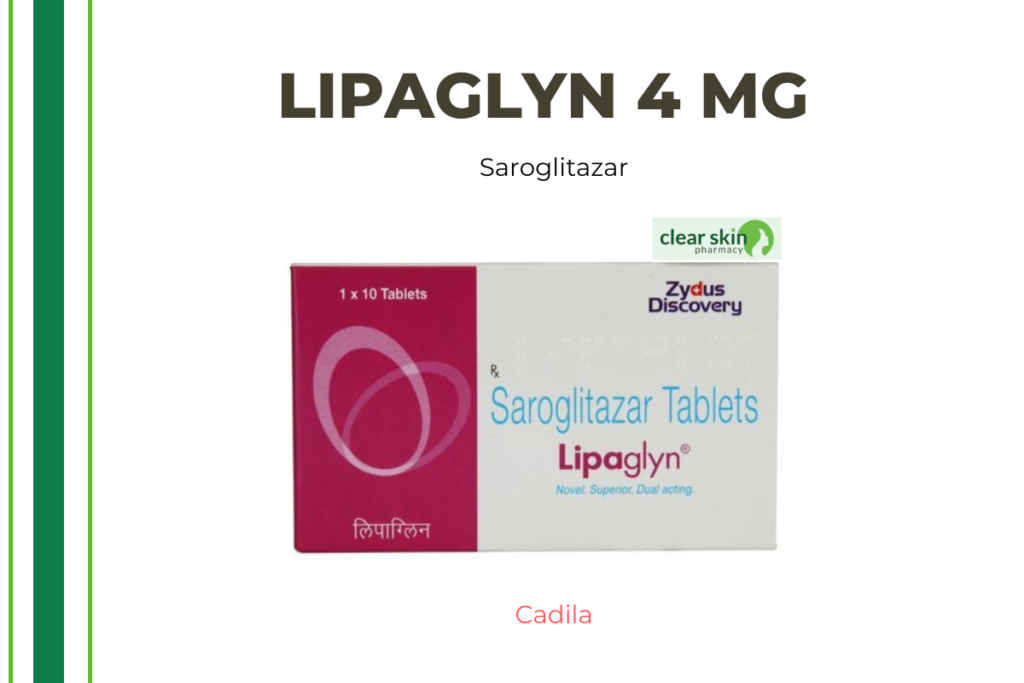
Medicinal Advantages
Insulin sensitizer Lipaglyn is used to treat type-2 diabetes patients with dyslipidemia/hypertriglyceridemia that cannot be controlled with statins alone. It has been demonstrated that Lipaglyn reduces triglycerides (TG), Low-Density Lipoprotein (LDL) cholesterol, non-High-Density Lipoprotein (non-HDL) cholesterol, and Very Low-Density Lipoprotein (VLDL) cholesterol while increasing HDL cholesterol. Additionally, it has been shown to improve glycemic indices in diabetics by lowering fasting plasma glucose and glycosylated hemoglobin. Lipaglyn is a dual agonist/antagonist for the Peroxisome Proliferator-Activated Receptor (PPAR), with a significant effect on PPAR-alpha and a moderate effect on PPAR-gamma. PPAR-alpha inhibits triglyceride synthesis and release, while promoting lipolysis and hepatic fatty acid oxidation. Furthermore, it promotes the production of HDL cholesterol. PPAR-gamma reduces the metabolic load on the liver and muscle, stimulates glucose utilization, and augments insulin-mediated post-absorptive reduction of hepatic glucose production. Lipaglyn combines lipid- and glucose-lowering properties into a single molecule, thereby aiding in the reduction of blood triglyceride and glucose levels. Additionally, it helps to decrease insulin resistance. Lipaglyn’s safety profile, lipid-regulating activity, and glycemic control have all been enhanced.
Use Instructions
Take Lipaglyn every day at the same time, with or without food. The tablet should be swallowed whole with a full glass of water; it should not be crushed or chewed. The duration of your Lipaglyn treatment will be determined by your physician based on your medical condition.
Storage Avoid direct sunlight and store in a cool, dry area.
Lipaglyn Adverse Reactions
Gastroenteritis (stomach inflammation) (stomach inflammation)
Nausea
Vomiting
Atherosclerosis (weakness) (weakness)
distress in the chest
Dizziness
Phenomenon (fever) (fever)
Adverse Drug Reactions
If you are allergic to any of the components, you should not take Saroglitazar. Notify your doctor if you experience a rapid increase in weight. Before using Saroglitazar if pregnant, consult your physician. It is unknown whether Saroglitazar is eliminated in breast milk; therefore, nursing mothers should avoid using this medication. Saroglitazar should not be administered to children because its safety and efficacy have not been established. Saroglitazar may cause dizziness; therefore, use caution when operating a motor vehicle. Alcohol consumption while taking Saroglitazar may result in unpleasant side effects. Saroglitazar should be used with caution in patients with type 2 diabetes and cardiovascular disease.
Interactions Between Drugs
No drug interactions have been discovered or established.
No drug-food interactions have been discovered or established.
No drug-disease interactions have been discovered or established.
Safety Recommendations
ALCOHOL
Alcohol consumption should be avoided while taking Saroglitazar to prevent unwanted side effects.
PREGNANCY
Saroglitazar is a pregnancy category C medication. Consult your physician before using Saroglitazar if you are pregnant; your physician will prescribe only if the benefits outweigh the risks.
BREAST FEEDING
It is unknown whether Saroglitazar is excreted in breast milk, so nursing mothers should avoid using the drug.
DRIVING
Possible side effect of Saroglitazar is dizziness. Therefore, only drive or operate machines while alert.
LIVER
SAROGLITAZAR SHOULD BE USED WITH CAUTION IN PATIENTS WITH LIVER Illness Saroglitazar should be used with caution in liver disease patients. Consult your doctor if you have a liver condition or if you have any questions about this.
KIDNEY
With caution, saroglitazar should be administered to patients with kidney disease. Consult your doctor if you have kidney disease or if you have any questions about this.
Advice on Diet and Lifestyle
Follow a cholesterol-lowering diet.
Exercise on a regular basis. It helps maintain weight and reduce cholesterol.
Reduce your salt and sugar intake.
Avoid smoking and alcohol consumption.
Choose healthy fats over trans fats.
Include in your diet omega-3 fatty acids, high-fiber foods, and fruits and vegetables.
Participate in any enjoyable physical activity, including swimming, brisk walking, and jogging. Use the stairwell instead of the elevator/lift.
Consume food at consistent intervals. Avoid skipping meals. Moreover, avoid overeating.
Complement your Saroglitazar treatment with a healthy diet and at least 45 minutes of walking per day.
Maintain restful sleep and avoid stress with meditation and yoga.
In addition, this item cannot be returned.
Concern for Patients
Diabetic dyslipidemia/hypertriglyceridemia is characterized by increased triglyceride, low-density lipoproteins (LDL), and decreased high-density lipoproteins (HDL) levels. This is a frequent complication of diabetes mellitus type 2. Diabetes is a significant risk factor for cardiovascular disease in diabetics. Dyslipidemia may be brought on by lifestyle factors, genetics, obesity, a diet high in saturated and trans fats, hypothyroidism, and kidney disease. Symptoms of diabetic dyslipidemia include chest pain/tightness, indigestion, heartburn, dizziness, palpitations, shortness of breath, cold sweats, nausea, and vomiting.
FAQs
While reducing triglycerides and low-density lipoprotein (LDL) cholesterol, saroglitazar increases HDL cholesterol. Additionally, it aids in the utilization of glucose. Saroglitazar achieves this by decreasing insulin resistance and blood glucose and lipid levels.
There is no association between Saroglitazar and weight gain or edema. However, if you experience rapid weight gain, consult a doctor. Your doctor may conduct a physical exam to check for fluid accumulation, volume-related issues such as oedema, and congestive heart failure.
Consult your physician before stopping Saroglitazar treatment. Continue taking Saroglitazar for as long as prescribed by your doctor to effectively treat your condition.
Older adults may take saroglitazar with a doctor’s prescription. Saroglitazar, on the other hand, should be administered with caution to the elderly.
If you have a history of heart problems, consult your doctor prior to taking Saroglitazar. If recommended, individuals with type-2 diabetes who have heart-related complications such as congestive heart failure should take saroglitazar with caution. In such patients, it is advised to regularly check for signs and symptoms of congestive heart failure.

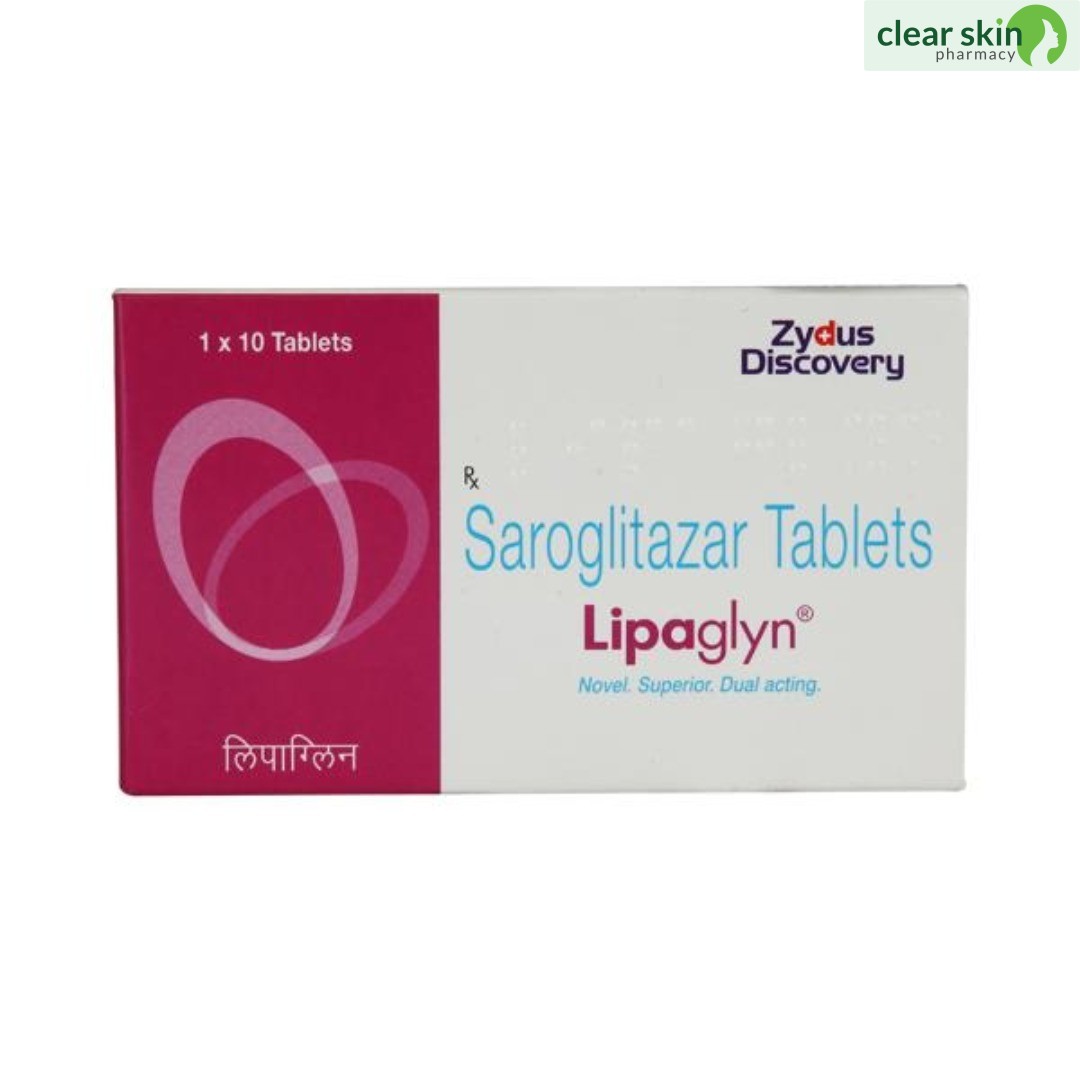
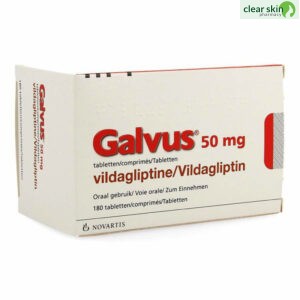
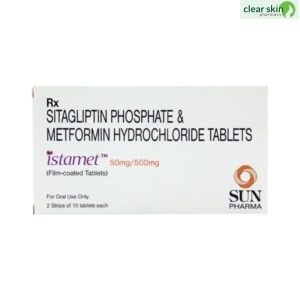



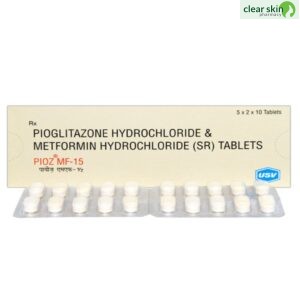
Be the first to review “LIPAGLYN 4 MG 10 Tablets”